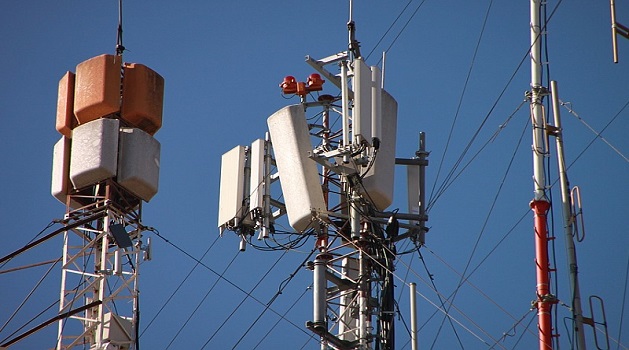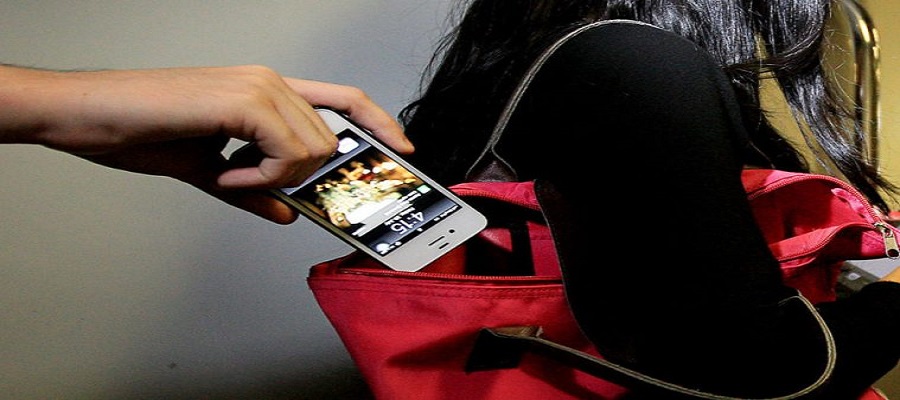Telecom
Telecoms Infrastructure Vandals in Trouble as President Tinubu Signs CNI Bill into Law

Federal Government has finally signed the ‘Designation and Protection of Critical National Information Infrastructure Order, 2024.’

Dr. Bosun Tijani, Minister of Communications, Innovation and Digital Economy, disclosed this on Wednesday.
Via his X handle, Tijani said, “I would like to appreciate President Bola Ahmed Tinubu for the release of the official gazette, ‘Designation and Protection of Critical National Information Infrastructure Order, 2024.’”
According to him, this is a significant step that will strengthen and protect investments in the ICT sector by reducing incidences capable of damaging the operations and functionality of our technological systems, infrastructure and networks.
The minister noted that the security and protection of these Critical National Information Infrastructure (CNII) is a priority for this administration and will help improve the quality of telecoms services, which has very often been affected by disruption and intentional damage.
He said this gazette now makes it an offence to purposefully damage assets such as telco towers/sites, switch stations, data centres, satellite infrastructure, submarine and fibre optic cables, transmission equipment, e-government platforms, and databases, among many others.
Checks showed that this development is coming over two decades after the telecoms revolution began in Nigeria. Also, the bill has been put up for consideration since the seventh senate administration.
Speaking on the development, the Chairman, Association of Licensed Telecoms Operators of Nigeria (ALTON), Gbenga Adebayo, said the industry is pleased with the news.
Appreciating President Tinubu, Minister Tijani and Executive Vice Chairman of the Nigerian Communications Commission (NCC), Dr Aminu Maida, Adebayo said the bill will support and protect critical national infrastructure, “whether from willful damage and agents shutting down the sites on the account of IGR drive and collection, that will stop.”
According to him, it means there are consequences for certain actions that impact service delivery. He said the development came at a very good time, especially as the talks for industry sustainability have become a major discussion in the country.
The ALTON chairman said people, who damaged communications infrastructure without consequences will now face consequences for their actions. “It will be a major deterrence for people, who are against the will of progress and largely, money spent on repairs of vandalised infrastructure by telcos can now be deployed into network expansion and stability.”
Telecom
NCC Asks Consumers to Monitor Data Usage to Authenticate Consumption

Nigerian Communications Commission (NCC) has charged the over 174 million telecoms subscribers in the country to constantly monitor their data usage to authenticate their consumption level.

This follows concerns being raised by telecoms consumers about the rapidity of data depletion on their devices.
The Commission particularly enjoined the consumers to always contact their service providers to make requests for cases of discrepancies noted in their data usage.
While the consumers are expected to contact their service providers to request for their usage history/statement where inconsistency exists in their data usage as first step, the Commission said they may also escalate such issues to the Commission through its toll-free Number 622 and social media platforms, especially if their requests are not satisfactorily handled.
The Commission, which also made some clarifications regarding the concerns being raised by the consumers around data usage, said the need to inform the consumers on their concerns is part of its commitment to protect and appropriately inform and educate the telecom consumer on industry issues.
Making further clarifications around data speed and usage, the Commission said data speed is the speed at which data is transferred between two devices, measured in megabits per second (Mbps or mbps), stressing that given the spread of Internet services and the immense investment in the sector, data rates have continued to increase and users may be unaware of how to measure data speed.
The telecoms regulator explained further that websites such as www.fast.com also provide an easy way for consumers to measure Internet speed on any device at any location.
“The higher the data speed, the quicker pages load-downloads and uploads-occur and expectedly, the quicker data bundles are exhausted. So, as telecom consumers are able to do more on devices in less time, some consumers’ devices & network service providers make it possible to limit data speed to help users manage data usage better.
“In any case, most devices now include functions to measure data used by devices and it is imperative that users monitor same to authenticate data usage, such as applications left running on devices. Therefore, where discrepancies occur users may contact their service provider to request for their usage history/statement. If request is not dealt with satisfactorily then, users can contact NCC by calling 622 or engage the Commission via its social media platforms”.
It added that the data usage experience is a function of location, network equipment and users connected in a particular location.
Telecom
Phone Theft: AMCODET Urges Mandatory Registration @ Point of Purchase

Association of Mobile Communication Device Technicians of Nigeria (AMCODET), has called on the Nigerian Communications Commission (NCC) to make it mandatory for mobile phones to be registered at the point of purchase.

According to Kehinde Apara, president of AMCODET, implementing this registration process would significantly help in combating phone theft and assist in locating stolen devices.
Apara, made this appeal in an interview in Lagos on Monday.
He stated, “Registration of mobile phones will reduce theft to the barest minimum, as it will be difficult for thieves to sell registered stolen phones.”
Apara explained that the registration of new phones would also help to reduce the harassment faced by technicians by security agencies.
“So many of our members have been labelled accomplices in theft cases, because customers bring stolen phones to them to repair. We believe this is unfair to such innocent people,” he said.
He went on to highlight that the NIN-SIM linkage, which was originally an idea brought forward by AMCODET, was created to curb insecurity and theft.
However, Apara pointed out that “It is not enough.”
He stressed the need for further measures to ensure the proper registration of mobile phones, emphasising that such a step would make it easier for technicians to identify stolen devices brought in for repair or flashing.
“AMCODET has been at the forefront of organising seminars on the security of mobile phones and has also been sensitising the public and authorities on the challenges faced by the association due to phone theft. There is no way our members can identify if a phone is stolen when brought to them for repairs or flashing, but if the phone is registered, the technician can more easily identify it,” he explained.
Apara also expressed a desire for closer collaboration with security agencies, saying, “We want to work with security agencies to ensure that phones are properly registered, theft is prevented, and thieves are brought to book.”
In additin to the call for phone registration, Apara appealed to individuals and the private sector to support efforts to develop the mobile phone industry in Nigeria.
He remarked, “We need individuals’ support to develop our industry, rather than relying on government for everything.”
He emphasised that Nigeria has the capacity to develop its own technology and reduce reliance on imported devices, “With the support of individuals and the private sector, Nigerians can begin to develop its own technology, rather than relying on imported technology.”
Apara expressed optimism for the future of the mobile phone industry in Nigeria, believing that with the right support, the country could build its own technological solutions and move towards greater self-reliance.
“We can develop our own technology.”
“But we need the support of individuals and organisations to make it happen,” he said.
Credit: NAN
Telecom
Apple Faces €150M Fine in France Over Alleged Antitrust Violations

French antitrust regulators have fined Apple 150 million euros ($162 million) over its App Tracking Transparency (ATT) feature, which is facing scrutiny in multiple European countries.

The French Competition Authority ruled that Apple’s implementation of ATT was “neither necessary nor proportionate to the company’s stated goal to protect user data” and unfairly penalized third-party publishers.
Alongside the financial penalty, Apple has been ordered to publish the decision on its website for seven days. The ruling comes amid ongoing investigations in Germany, Italy, Romania, and Poland into ATT, which Apple introduced in 2021 as a privacy safeguard.
ATT requires apps to obtain explicit user consent via a pop-up before tracking activity across other apps and websites. If users decline, the app loses access to their advertising identifier, limiting targeted advertising. Critics argue that the system disproportionately benefits Apple by restricting competitors while promoting its own advertising services.
The French watchdog found that ATT forces users to navigate excessive consent windows for third-party apps on iPhones and iPads, making the process unnecessarily complicated.
Additionally, Apple’s system requires users to opt out of ad tracking twice rather than once, which the authority said undermines the feature’s neutrality and causes economic harm to app publishers and ad service providers.
The ruling emphasized that smaller publishers, which rely heavily on third-party data collection for revenue, are particularly affected.
The French regulator initially declined to impose emergency measures in 2021 after complaints from the advertising industry, but continued its investigation, ultimately leading to Monday’s decision.

 Telecom2 days ago
Telecom2 days agoMTN, Lynk Global Make Africa’s First Satellite-to-Mobile Call

 E-Business2 days ago
E-Business2 days agoSystemSpecs’s Subsidiary Deelaa Becomes Whatadeal

 General News2 days ago
General News2 days agoSERAP Asks National Assembly to Drop Bill to Jail Nigerians who Fail to Vote

 E-Financial2 days ago
E-Financial2 days agoNigeria Gets Fresh $500m World Bank Loan for Economic Stimulus Programme

 E-Financial2 days ago
E-Financial2 days agoUninsured Depositors of Heritage Bank to Receive Liquidation Dividends In April – NDIC

 Telecom2 days ago
Telecom2 days agoSmart Treasure Investment Team’s Initiatives Eradicate Poverty, Says Aminu

 E-Business2 days ago
E-Business2 days agoCybersecurity Firm Says It’s Time to Back it Up, As the World Marks World Backup Day

 General News2 days ago
General News2 days agoFG to Elevate Enugu Tech Festival to National Event – Minister






















